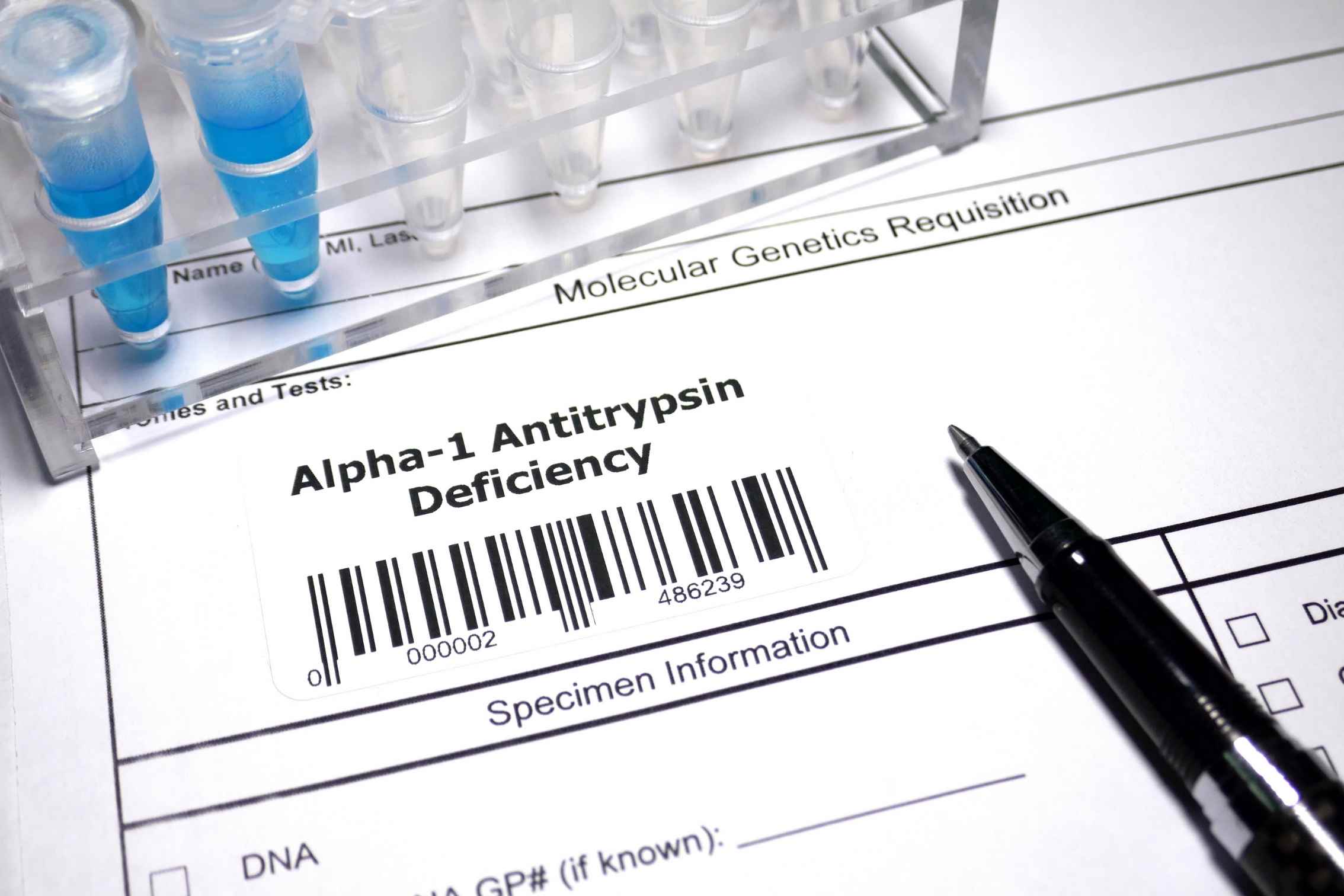Alpha-1 antitrypsin deficiency DNA test
Attention! Changes due to the COVID-19 pandemic!
The laboratory accepts clients and patients in person strictly by prior appointment. To apply for a visit, write to info@genera.lv or call us 26267833! We recommend that you perform the DNA test remotely. More information here.

Alpha-1 antitrypsin deficiency DNA test:
Alpha-1 antitrypsin (A1AT) is a protein produced by the liver and, to a lesser extent, by the lung epithelium and macrophages. Through the circulatory system, A1AT enters the lungs, where it performs its functions. A1AT deficiency is a congenital condition that can cause lung and liver disease. Symptoms may vary from individual to individual, and the first signs most often appear in adulthood, between the age of 20 and 50.
The most common genetic cause of A1AT deficiency is mutations in the SERPINA1 gene, which result in a degraded or non-functional protein entering the circulation, or in an insufficient protein amount. PI-M variations are not associated with A1AT deficiency. The two most common mutations causing this pathology are PI-S and PI-Z.
Several variants (alleles) of the disease-causing gene are possible; the M allele does not cause A1AT deficiency because it is responsible for normal protein production. Usually, people have two copies of this M allele (MM). There may also be other variations of the SERPINA1 gene. For example, the S allele produces an average quantity of this protein, while the Z allele produces very low levels. If an individual has two copies of the Z allele (ZZ) in every cell, they are more likely to have an A1AT deficiency. Those with the SZ or MZ allele combination have a significantly increased risk of developing a disease caused by A1AT deficiency. If the combination of alleles is MS, SS, or MM, the amount of protein is usually optimal or sufficient.
Frequency: about 1:3000–1:5000
Type of heredity: autosomal codominant
Purpose of testing: Identify the two most common mutations in the SERPINA1 gene (PI-S and PI-Z) as well as the presence of other clinically relevant mutations in the genome in patients with clinically reasonable suspicion of A1AT deficiency.
For whom is this test recommended?
The test is recommended for those with serologically reduced A1AT levels, to determine the status of mutations.
- WHO recommends serological testing of all individuals with chronic obstructive pulmonary disease (COPD), as well as adults and adolescents with asthma.
- If there are clinical signs of A1AT deficiency: emphysema in the 3rd or 4th decade, emphysema in a non-smoker, family history of emphysema, lower lung emphysema (X-ray), adult-onset asthma, frequent bronchitis.
- Serological testing is recommended for patients with chronic, recurrent respiratory symptoms (dyspnoea, cough, etc.).
If a reduced serum amount of A1AT is found, genetic testing is recommended.
Recommendations for PI-SZ and PI-ZZ genotype carriers:
Vaccinate against influenza and pneumococci to protect the lungs from further damage.
Seek immediate medical attention when developing symptoms of a cold because the treatment has to be rather aggressive.
Avoid smoking (both active and passive), corrosive gases, dust, pollution.
Have regular physical activities.
Undergo liver examinations.
If necessary, A1AT substitution intravenously.
Notes:
Other, very rare mutations in the SERPINA1 gene that cause A1AT deficiency are also possible; they cannot be detected by this test.
In very rare cases, a false negative result is possible due to the possibility of mutations at the site of oligonucleotide (PCR primer) binding.
Important!
With a doctor’s referral (for a complete list, see the “Prices”) section) medical DNA tests (except for the prenatal NIPT “Panorama” test for pregnant women) are paid for by the NHS. Important! The NHS only pays for the test if the referral is issued as part of an NHS-paid visit, and the doctor has a contract with the NHS. Referrals issued during a paid visit will not be valid. Quotas are available.
The sample for DNA testing can be submitted at any branch of our partner - Centrālajā laboratorijā.
You can also order all offered DNA tests at full price. Remote contactless testing is available for both paid and NHS-referred tests. All medical DNA tests can be performed remotely, except for tests on pregnant women, where a blood sample must be collected.
Do you have questions about testing opportunities?
Ask us!